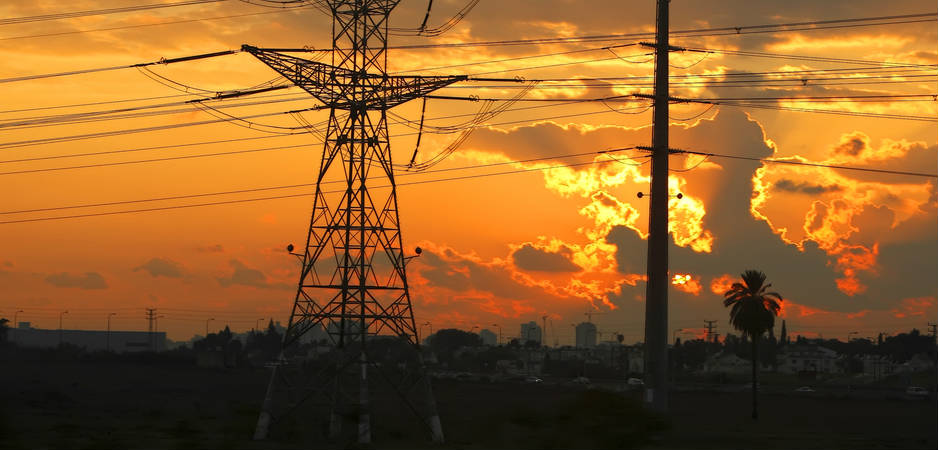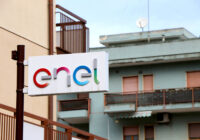African start-ups can bring affordable energy solutions to millions of people around the continent.
The Dallas “Cowboys Stadium uses more power than the entire country of Liberia.” Let that sink in.
Ellen Johnson-Sirleaf, the Liberian president, made this revelation in a recent article. Unfortunately, the situation she describes is not unique to Liberia. More than two-thirds of sub-Saharan Africans live without electricity, and more than 85% of those in rural areas lack access to power. African governments have tried, with varying levels of success, to address this issue. Their efforts received a boost with the Obama administration’s announcement of the Power Africa initiative — a commitment of $7 billion in financial support to help increase power generation across the continent.
As laudable as these efforts are, the real race to power Africa is being run — and won — below the government level, by a host of African start-ups. We live in an age of the start-up, where every problem, or systemic inefficiency, is just another company waiting to be formed. In this regard, Africa is no different. There is, perhaps, no larger problem on the continent than a lack of generation and access to power. So it is no surprise that a fair number of companies in Africa’s digital boom have chosen to offer solutions in this area. Over the past year, their efforts have begun to bear fruit and investors have started to pay attention.
Transforming Africa
Recently, Off Grid Electric, a “solar-as-a-service” start-up providing solar energy to rural communities in Tanzania, raised $7 million from a consortium of investors to support their bid to “light Africa in a decade.” They are not alone. In 2013, Persistent Energy Partners, a New York-based venture capital fund, acquired Impact Energies, a two-year-old start-up that sells and leases solar home systems in Ghana, for a sum rumored to be in the seven figure range. The union created a new arm, Persistent Energy Ghana, which plans to reach over 25,000 households by 2016.
These investors, however, are not the first to show interest. D. Link, which provides solar lanterns to rural customers in over 40 countries, and M-Kopa, which provides a complete solar power home system on an affordable payment plan, have, in the past, managed to raise money from the Acumen Fund and Gray Ghost Ventures among others.
A lack of significant investor backing, however, has not deterred dozens of other companies from facing the power problem head-on with innovative solutions. ARED in Rwanda and Solarkiosk in Ethiopia are looking to outfit the small kiosks — ubiquitous across many African countries — with solar panels and empower them to provide energy solutions within rural communities. Zamsolar in Zambia, Barefoot Power in Ghana and Dungo Energy Solutions in Ethiopia are looking to deliver solar solutions directly to households by employing local distribution networks. Taking a different approach, ECO Power Africa and Green Energy Park in South Africa are looking to convert biomass into the energy the continent so desperately needs. The multitude of solutions being offered by these companies speaks to the scale of the problem they are hoping to solve.
More than two-thirds of sub-Saharan Africans live without electricity, and more than 85% of those in rural areas lack access to power.
Cheap, Renewable and Localized Solutions
What these solutions have in common is that they are cheap, renewable, distributed and highly localized. As the cell phone boom in the 1980s and 1990s proved, in Africa, this is the way to succeed where governments have failed. As Emeka Okafor, a popular tech blogger, explains:
“Following the central-station model as practiced in the West meant that Africa had no tele-communications for decades. Cellular telephone technology allowed local entrepreneurs to build small, cheap, and rapidly deployable cell towers. Cellular technology enabled Africa to avoid replicating the expensive centralized model. The same can be done with electricity generation. Instead of investing billions in constructing major power stations, transmission towers, and distribution and metering infrastructure, it is much easier to deploy micro-to-small power generating nodes that will supply electricity efficiently on a localized basis.”
It is arguable, even more so than the telecommunications market, that the energy industry in Africa is primed for this revolution. The constant hum of the thousands of diesel generators on Victoria Island in Nigeria is a reminder of how the continent’s wealthier inhabitants have already solved their energy problem. The high price of diesel has prevented this model from being widely adopted. Affordable solar or biomass products avoid this problem. There is every reason to believe the small energy start-ups of today will soon compete with telecom companies for dominance of the African corporate space.
The Obama administration’s Power Africa initiative pays lip service to the importance of mini-grid and off-grid solutions. Yet the majority of investments announced seem to be directed toward large-scale, centralized interventions that will increase power generation capacity and hopefully get more people on the grid. In the meantime, smaller, fast-moving start-ups are racing to provide alternative solutions for millions of people who remain off the grid. If they continue at their current pace, citizens in Liberia — and other countries — will have near complete access to off-grid power before the Dallas Cowboys win another Super Bowl.
The views expressed in this article are the author’s own and do not necessarily reflect Fair Observer’s editorial policy.
1 comment
Leave a comment
You must be logged in to post a comment.
Support Fair Observer
We rely on your support for our independence, diversity and quality.
For more than 10 years, Fair Observer has been free, fair and independent. No billionaire owns us, no advertisers control us. We are a reader-supported nonprofit. Unlike many other publications, we keep our content free for readers regardless of where they live or whether they can afford to pay. We have no paywalls and no ads.
In the post-truth era of fake news, echo chambers and filter bubbles, we publish a plurality of perspectives from around the world. Anyone can publish with us, but everyone goes through a rigorous editorial process. So, you get fact-checked, well-reasoned content instead of noise.
We publish 2,500+ voices from 90+ countries. We also conduct education and training programs
on subjects ranging from digital media and journalism to writing and critical thinking. This
doesn’t come cheap. Servers, editors, trainers and web developers cost
money.
Please consider supporting us on a regular basis as a recurring donor or a
sustaining member.
Will you support FO’s journalism?
We rely on your support for our independence, diversity and quality.







Abdallah Smith
July 18, 2014
I think you have brought up a marvelous point on how we should look at power generation on the continent. The decentralization of energy shouldn't be the last sector we look to fragment. State's across the continent lack the capacity and competence to carry out effective policy outside of the major cities (and even within the major cities). I think we need to look further at the word decentralization and see how it applies to agriculture, governance, water supply etc. People will only be empowered when they are actively contributing to the environment they live in. We have adopted a state system that is alien to our geographical and social predicament. People look at government as the harbinger of development. But what people don't realize is that it is up to them to decide what development means and pursue that as a community, city, nation.